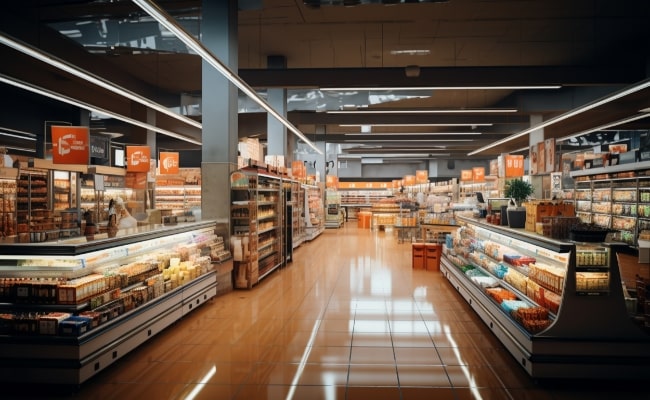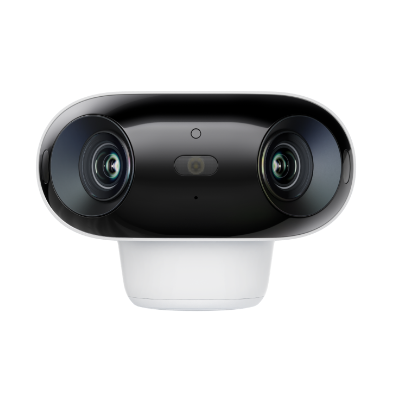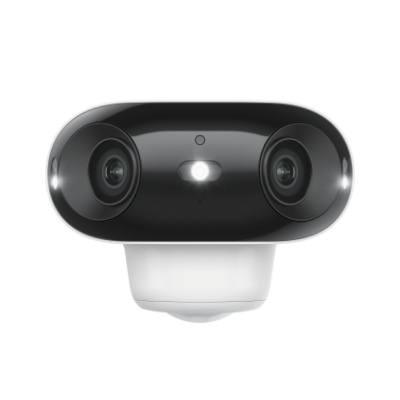How Often Do Stores Check Cameras? Retail Security Insight

Wondering do stores check cameras? Security cameras have become an important fixture in retail stores and shopping centers of all sizes. Surveillance systems serve as a vital asset for loss prevention and ensuring a safe shopping environment. Those stores without cameras are always at risk. With cameras covering every aisle and corner, some customers may wonder - just how often do retail outlets actually review the footage?
The monitoring of security video varies extensively based on the store's size, assets, and security concerns. Here's an in-depth examination of how often different retailers audit their camera systems, and the reasons behind it.
Do Stores Regularly Check Cameras?
The answer is yes but the frequency of security camera oversight fluctuates dramatically depending on the individual retailer. Major chains and department stores often have dedicated loss prevention departments that actively monitor surveillance footage in real-time as a routine practice. Small independent 'mom-and-pop' shops on the other end of the spectrum may go days or weeks without checking cameras at all, only reviewing video when an incident is reported.
High-end boutiques with expensive merchandise will tend to scrutinize cameras more frequently to deter and catch shoplifters. Luxury retailers like jewelry, designer fashion, and electronics stores are most prone to coordinated theft rings, needing vigilant surveillance. Big box retailers have assets that attract thieves as well, but may focus slightly more attention on general safety and liability concerns versus outright theft.
How Often Do Stores Check Their Cameras?
For the average retail store chain, security camera footage is audited approximately every 24 to 48 hours. Larger retailers with multiple locations often have a loss prevention team that actively checks in on video feeds from different stores throughout the business day. While not continuously monitored, frequent intermittent spot checks can help identify suspicious trends or deter theft.
On the other end of the scale, smaller independent shops with just one location may go multiple days without examining security footage at all, unless an incident is reported that requires video review. The cost and staffing required for frequent monitoring is simply not viable for most small businesses. Still, they utilize cameras as a deterrent, and check footage when necessary after the fact.
When Do Stores Check Cameras?
While most retailers do not continuously monitor cameras in real-time, they will consistently review footage in response to certain events and situations:
Unauthorized Access
If a store's alarm is triggered after hours, or there are signs of unauthorized entry or tampering, security video will be checked immediately. Cameras positioned at access points like doors and windows can help identify break-in perpetrators for police investigations.
Reports of Shoplifting or Theft
In response to suspected theft or shoplifting, either observed or reported by customers, stores will promptly review camera footage to try and identify the suspect. Timely video analysis is crucial for pressing charges and recovering stolen goods, so staff will prioritize footage review following theft incidents.
Disputes or Complaints from Customers
When a customer makes any claim against the store, such as a trip-and-fall accident or dispute with an employee, security video will be thoroughly reviewed as evidence. Footage often settles liability questions in these scenarios.
Reported Safety Incidents or Accidents
Video will be examined following injuries, violence, or accidents in the store, such as fires, assaults, or criminal activity. Camera footage aids insurance claim investigations and provides documentation of events.
Analyze Customer Traffic
Though not continuously monitored, store management may periodically spot check cameras to analyze customer traffic patterns and merchandising effectiveness. They identify high-traffic areas and dead zones, adjusting product placement accordingly.
Monitor Employees
Cameras act as a check on employees, and may be reviewed for policy violations, suspected theft, or other employee misconduct. Video has firing power if workers are caught mishandling merchandise, stealing, or violating safety policies.
How Do Security Cameras Work in Stores?
Modern retail security systems involve multiple technologies working in unison:
- Video Capture: High-resolution, wide-angle CCTV cameras are strategically positioned throughout the premises, with critical spots like entrances, registers, and backrooms covered. Some systems incorporate PTZ cameras (pan-tilt-zoom) that can be manipulated for enhanced monitoring.
- Transmission: The video feeds from all cameras are transmitted via wired Ethernet or secure wireless networks back to a central digital video recorder (DVR).
- Recording: A DVR or NVR device records and stores video, typically retaining footage for 30-60 days on average before it is overwritten. Storage duration varies based on system capacity.
- Remote Access and Control: Authorized loss prevention staff can access live and recorded video remotely from any location via software. They can view and control PTZ cameras, and flag important clips.
- Analytics (Optional): Sophisticated systems can use AI and analytics to detect suspicious behavior or events, notifying security teams. This allows more efficient monitoring.
For example, the new Reolink Argus 4 Pro is ideal for store use. Its 180-degree field of view and ColorX full-color night vision ensure the entire store is effectively monitored.
4k 180° Wire-free Color Night Vision Camera
4K UHD 180° Blindspot-free View; Color Vision Day and Night; 30% More Battery Life; Dual-band Wi-Fi 6; Smart detection.
For customers who need full-color night vision without visible spotlights, the Reolink Argus 4 Pro is the ideal alternative. Alternatively, if you want an affordable option that nonetheless provides good performance, the Argus 4 standard version is worth considering.
4k 180° Blindspot-free Wi-Fi 6 Camera
4K UHD 180° Blindspot-free View; Dual-band Wi-Fi 6; Smart detection; Easy Installation Anywhere
How Long Do Stores Keep Shoplifting Records?
How long do supermakets keep CCTV footage? Most supermarkets install CCTV cameras to monitor daily activities. Since these cameras can store footage, supermarkets retain recordings for a specific period. Generally, they keep CCTV footage for 30 to 90 days. The retention period depends on their storage system and capacity.
Many supermarkets store footage on local devices like SD cards or hard drives, while some use cloud storage as a backup. The main drawback of local storage is its limited capacity—once it reaches its limit, older footage gets overwritten.
How Often Does Walmart Check Their Cameras?
With over 5,000 stores worldwide, Walmart has an extensive and state-of-the-art camera surveillance operation. In their branded stores, all security camera footage is streamed back to a central monitoring station. There, trained surveillance personnel actively watch the video feeds in real-time on a 24/7 basis.
With this level of continuous live monitoring, Walmart can identify and respond to theft, safety issues, or other incidents nearly instantaneously. They have loss prevention staff detecting suspicious activity as it happens. This real-time oversight is resource-intensive, but a priority for Walmart given the sheer volume of customers and potential threats.
FAQs
How often are security cameras checked?
Most retail stores review footage every 24-48 hours on average. Larger chains may have active real-time monitoring, while smaller shops only check sporadically when needed.
How long do stores keep shoplifting footage?
Shoplifting and theft footage is typically kept 30-90 days. Stores need to retain it long enough to identify suspects and support police investigations if desired.
Are security cameras actively monitored?
Only very large retail chains like Walmart have 24/7 real-time surveillance. Smaller stores cannot afford the staffing for continuous active monitoring and instead review footage as needed.
Conclusion
While security cameras are ubiquitous in retail environments, the actual monitoring of those cameras varies extensively. Larger chains invest heavily in 24/7 surveillance, while smaller shops review footage only as needed.
But across the board, cameras act as both a real and perceived asset for retailers, helping to secure merchandise, promote safety, and ultimately create a welcoming environment for shoppers.
Search
Subscribe for the Latest Updates
Security insights & offers right into your inbox


